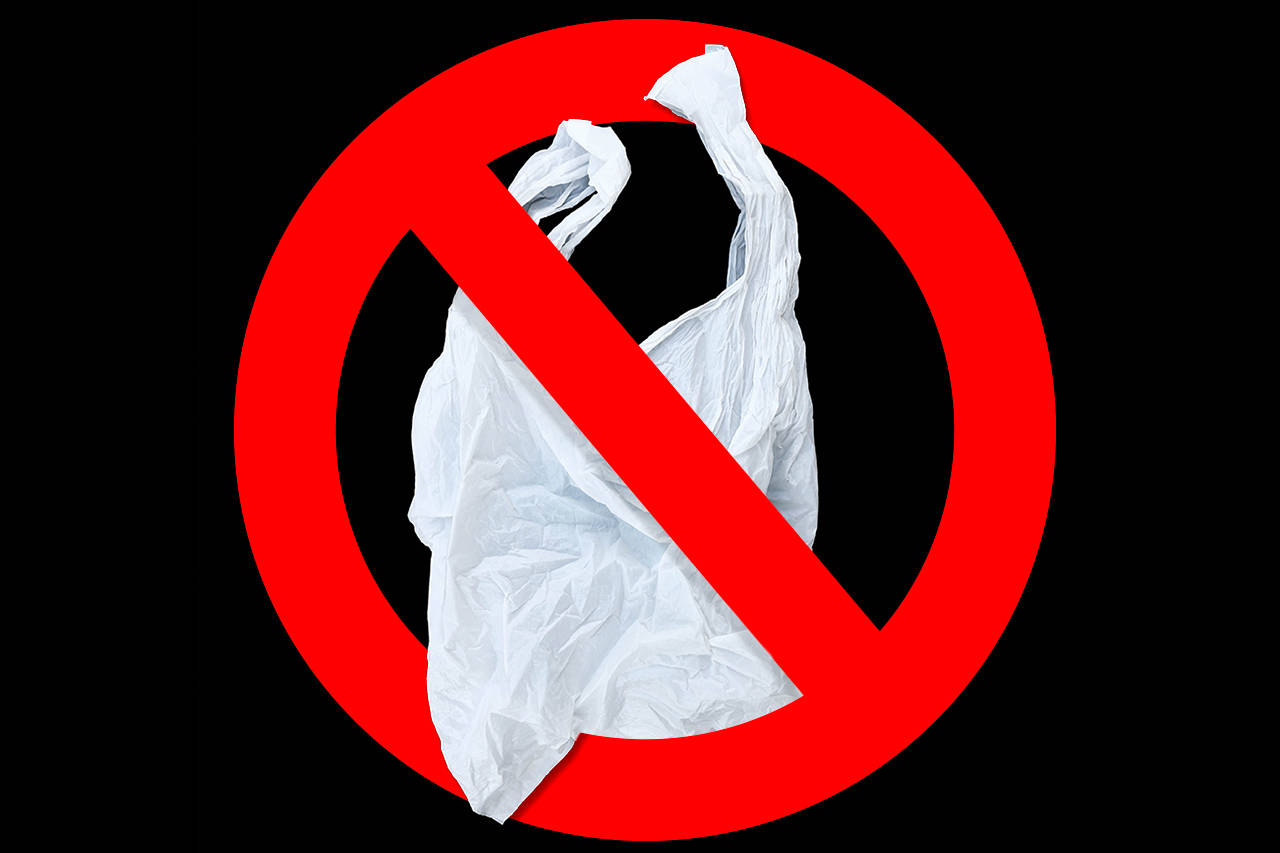Submitted by Environment Washington
Sen. Kevin Ranker (D-Orcas Island) and Rep. Strom Peterson (D-Edmonds) announced on Nov. 28 that they are introducing a pair of companion bills in January 2019, at the state legislature to address plastic pollution and recycling contamination due to plastic bags. The reusable bag legislation will build off the existing 23 local ordinances already in place in Washington.
“Right now, there are more than 86 million metric tons of plastic in our oceans, and the equivalent of five grocery bags of plastic trash for every foot of coastline spills into the oceans annually,” Ranker said. “We must lead with bold progressive action to stop plastic waste from ending up in our oceans.”
Peterson was the city council member in Edmonds who championed the first reusable bag ordinance in Washington in 2009.
“The problem of plastic bags has only gotten worse since then. They are causing a major contamination problem in our recycling and compost streams,” said Peterson.
Kent Councilwoman Brenda Fincher joined Ranker and Peterson at the kickoff event. The Kent Public Works Committee plans to consider a bag ordinance in December.
“We are seeing plastic litter along the highways and in our public spaces. We need to reduce bags so that they don’t end up contributing to the litter going into our creeks and lakes,” said Fincher. “Numerous countries have banned plastic bags, and so we are behind the curve.”
“In our experience, our customers support reducing plastic bags,” said Sara Osborne, public affairs director, Safeway and Albertsons. “In our bag ban jurisdictions, customers adapted quickly to using their own bags and understand the reasoning to do so.”
“The average American uses about 500 bags per year,” said Heather Trim, executive director of Zero Waste Washington. “Reducing carryout plastic bags will make a big difference. The time for action is now.”
Gus Gates, Washington policy manager for the Surfrider Foundation, added, “Plastic bags are one of the top 10 items we find every year at beach cleanups in Washington and around the globe. Eliminating this chronic source of plastic pollution will go a long way towards keeping our beaches and aquatic ecosystems in Washington clean”
“Plastic pollution harms wildlife in the ocean, in rivers and on the surrounding lands. For example, plastic has been documented in nearly 700 species of marine life, including gray whales found washed up on the shores of the Salish Sea,” said Dr. Erin Meyer, director of Conservation Programs and Partnerships, Seattle Aquarium. “Now is the time for Washington to take action to stem the flow of plastics into our waterways and do our part in reducing the use of single-use plastics.”
“Plastic bags are symbolic of the problems arising from our consumption of single-use plastics: they are derived from and contain toxic petrochemicals; they are used briefly, persist in our environment for centuries and contribute to marine debris” said Chris Wilke, Puget Soundkeeper and executive director, Puget Soundkeeper. “We must change the way we consume and dispose of products to protect Puget Sound and its waterways from pollution.”
“Let’s choose wildlife over waste,” said Bruce Speight, executive director of Environment Washington. “Moving beyond single-use plastics is something we can do right now, and we look forward to working with the Legislature to make that happen. The passage of the Reusable Bag Bill would be a big step forward in reducing the plastic pollution that threatens wildlife and our environment.”
The reusable bag bill is one of the four bills selected as environmental priorities for the 2019 legislative session. The other three bills are those that address orca recovery, oil spills and promoting 100 percent renewable energy.



